The conversations around climate change, plastic pollution and the war on waste is enough to make anyone planning their wedding day want to be more environmentally friendly. I know it was for us. When we think about weddings the images conjured up are usually far from eco. But what if I told you a wedding with no rubbish is possible and can be a way to help fight climate change.
My husband and I live a zero-waste life, this means we aim to send nothing to landfill. You might have heard it referred to as low-waste living, waste-free, minimal-waste or low impact living. Whatever the title, each one has the same goal of diverting what we can from landfill by refusing, reducing, reusing, composting and recycling as a last resort. Our wedding produced a handful of rubbish and nothing ended up in the recycling bin either.
Breaking the day into categories helped us figure out where waste would be created – communication, food and entertaining, gifts, decorating, attire and entertainment. We also set out questions to be applied as we worked out the logistics and our aim to reduce waste in each category:
- Can we hire?
- Can we make it?
- Can we borrow?
- Will anyone miss it?
- Will we be sorry we didn’t have this at our wedding in five, ten or fifteen years’ time?
- How was it made?
- What will happen at the end of its life?
- Can it be reused?
- Can it be composted?
- Can it be recycled?
Before you run off thinking that’s impossible, let me assure you planning a wedding to be almost zero-waste is easier than you think. Here are my top tips:
There is no one size fits all for an eco-wedding
Do an internet search for eco wedding inspiration and you will no doubt find images of ceremonies set in a rural location, everything is small, handmade, home brewed beer, vintage wedding dress with a boho or hippy theme. The thing is an eco wedding does not need to be any of these unless this is how you want your wedding day. We had a large wedding, in the suburbs and were still able to keep to our low waste goals.
Comparison is the thief of joy and a fun day
Like each couple getting married, each wedding should be unique. Find a style that works for the two of you. After all, it’s your day. If you’ve read about other eco weddings where flowers were foraged locally or you are having no luck finding a second-hand wedding dress, don’t stress. Look for other ways to be sustainable during the process. Read other stories for the ideas, not as a rule book.
Compost
Up to 40% of our household bins are made up of food. And at a wedding, it’s even more! There is a simple alternative that can help keep that food from being waste in landfill, which is a good thing because food doesn’t break down properly in a landfill site and creates something called methane gas.
Methane is a more powerful greenhouse gas than carbon dioxide. Keeping organics out of landfill will also help put much-needed nutrients back into the soil and into our food. And it’s not just food that can be composted. Flowers from your big day can also be composted. Most cities have an independent compost collection service or you could reach out to a local farmer. Make sure to tell your caterer or venue you would like to compost any uneaten food. They might even have suggestions on how to reduce food waste by choosing certain dishes.
Local food and flowers
Serving seasonal, local food to your area will help reduce the energy and even packaging needed to transport the food your guests will enjoy. You could also choose catering companies that support community or charity initiatives like the Asylum Seeker Resource Centre.
Did you know many of our favourite flowers are imported from overseas? Choosing locally grown flowers that are in season requires fewer fossil fuels to get them shipped to our country.
Hire instead of buy
If you want to have a wedding with a particular theme or style, see how you can do it with less waste, by asking some questions like; where was this item made, where will it end up at the end of its life cycle and can it be reused. Most props used to style weddings can be hired or borrowed out from professional event businesses, friends, family and even on Facebook Marketplace.
Don’t be afraid to ask questions
Assuming and not asking questions of suppliers will lead to unexpected plastic waste. Most of us have never planned a wedding before, nor an event for over a hundred people. So asking those tough eco questions is a must! Plus you could inspire the venue or caterer or wedding planner to take these changes on permanently!
Eco-stationery
While we were able to design and print our own material for the wedding, I understand most don’t have this option. If you are going to have material designed and printed for your event, simply ask your designer exactly what you can do in terms of a sustainable end product. Most designers and printers will have a good idea and contacts to help. If you are fortunate enough to have access to an office printer, or simply want to print at home, then finding 100% sustainable recycled post-consumer paper is not difficult. All specialty paper stores will either have it in stock or can source it for you. I’ve seen many invitations with seeds infused into the paper allowing your guests to plant them after.
If you’d like to keep it paper free, go the electronic route with a company like greenvelope.com.
Gifts
There are many different ways to offer gifts to your wedding guests that are low waste and plastic free – plants, homemade jam, seeds; Pinterest has numerous suggestions! Consider making a donation on behalf of each guest to a charity of your choice, like SeedMob or a local Landcare project.
Hire or rent your wedding dress
Rather than buy a brand new dress look at hiring or buying second hand. Think about the resources that go into creating a new dress worn for one day only; growing fabric, shipping it around the world, electricity used to sew it together. This is why hiring and buying second-hand are great eco choices as it’s extending the life of these valuable resources and also the work someone put into making your dress or suit.
Here is a list of companies that offer bridal dresses for hire: Sunset Bridal (Melbourne based bridal boutique), Something Borrowed, Rent My Rack, Glam Corner, Runway Collection.com.au.
There are several options to hire formal dresses that would look great as wedding dresses too. Hiring is a great option as you don’t have to worry about storing the dress either. There are many beautiful pre-loved wedding gowns on I Do Gowns or Still White, and at Love Me Twice Bridal. You can then sell yours on after your big day.
When it comes to shoes and jewellery, ask friends if they have anything you can borrow. You would be surprised by what people will offer too!
Choose reusables
Avoid the throwaway plastic tableware, and hire ones that can be washed like real cutlery, plates, glasses and cloth napkins. No plastic straws either! Don’t just limit yourself to the crockery also consider how else you could get something like beer and wine. For instance, try buying it in kegs instead of individual glass bottles as the energy to refill the kegs is far less than recycling bottles.
Our wedding day was a big success. We achieved a close to zero-waste wedding without anyone knowing they had even been at an eco wedding which is what we wanted. While our aim to create a day that reflected our values was important, the main intention was for it to be as fun for everyone. And it was one of the best days of my life, just without the rubbish.
About the author Erin Rhoads of The Rogue Ginger: Erin has been writing about her zero-waste journey since 2013. Her blog, The Rogue Ginger, quickly became one of Australia’s most popular eco-lifestyle websites, and Erin is now a prominent commentator on zero-waste living. She is on a mission to engage with individuals to redefine what is waste and how to create less of it in her booked-out talks and workshops around the country. Erin is the author of Waste Not: How to Make a Difference by Throwing Away Less (Hardie Grant), was a consultant on Australia’s popular TV show War on Waste and is a regular contributor for ABC Radio. She has been featured on BBC World, The Project, Sunrise, Morning Show, Marie Claire, Australian Women’s Weekly, the Age, the Guardian, Peppermint magazine.


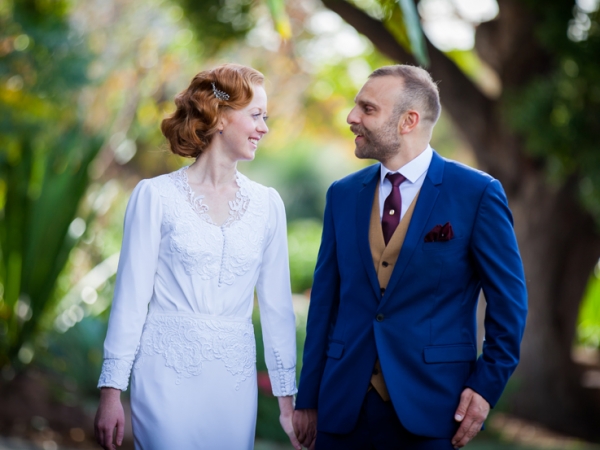
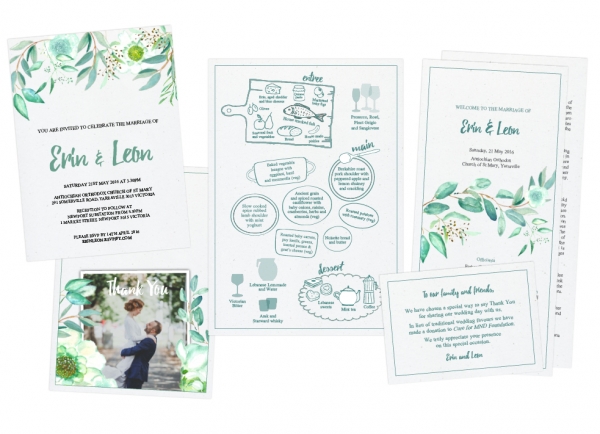
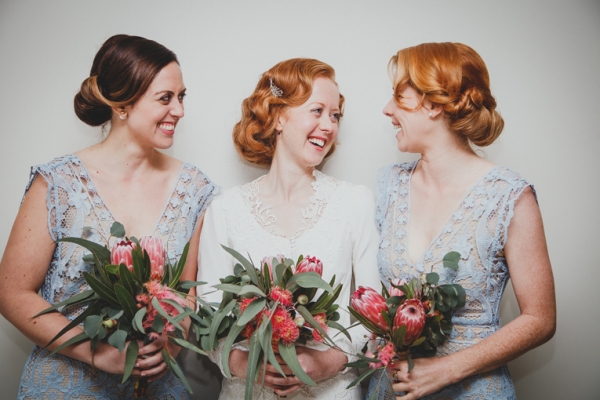
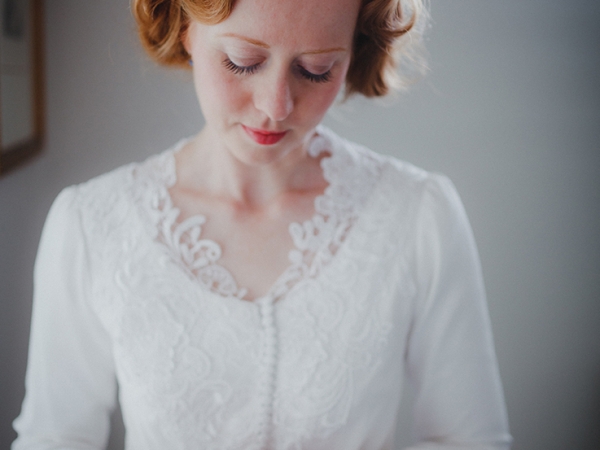
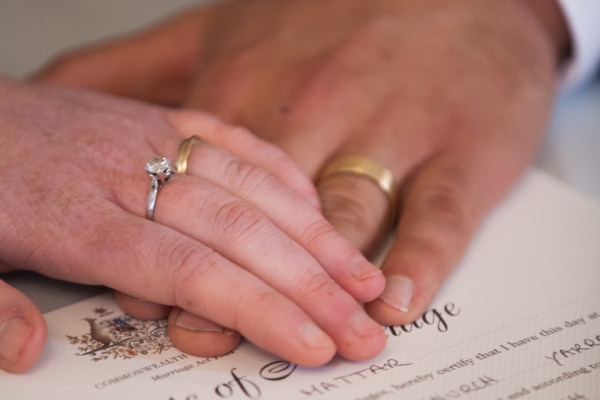
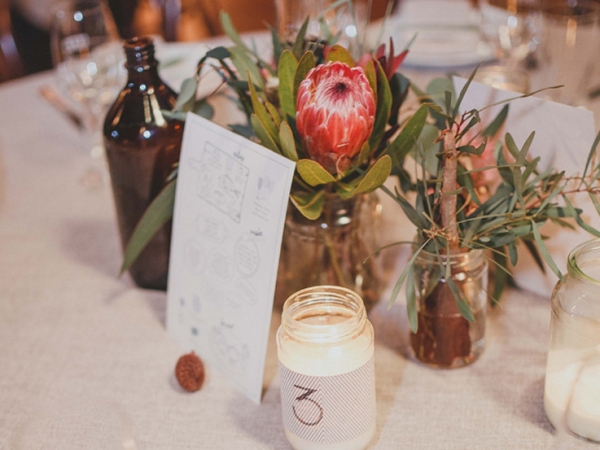
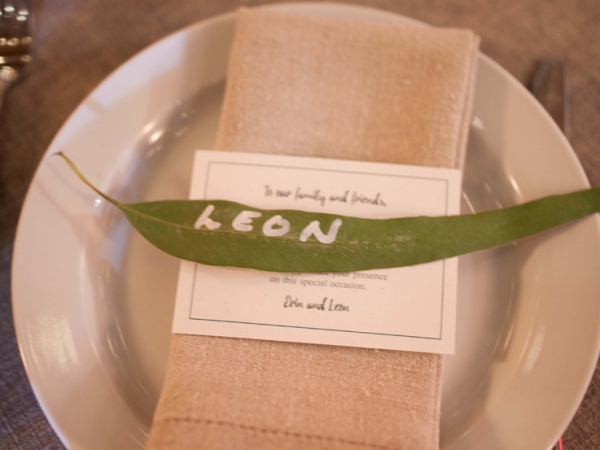
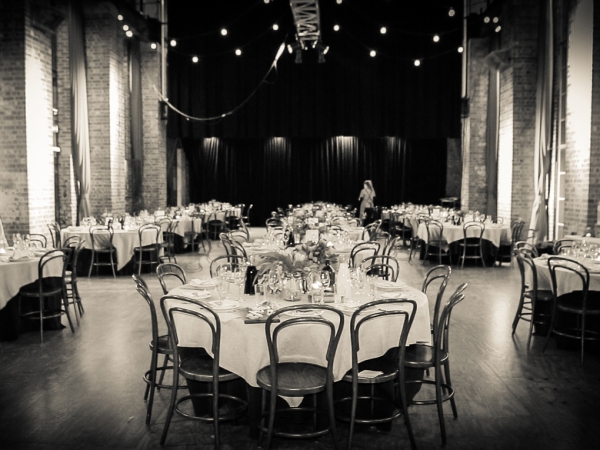

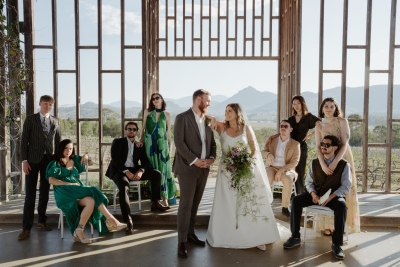
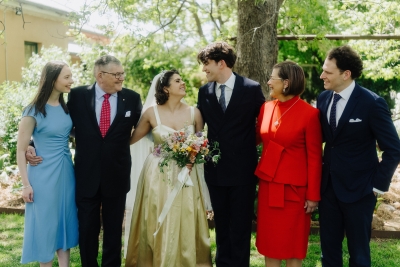
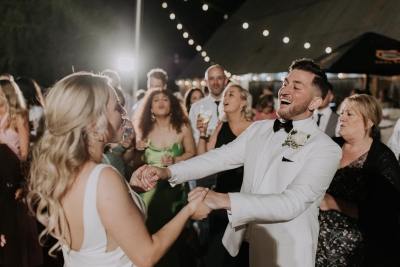
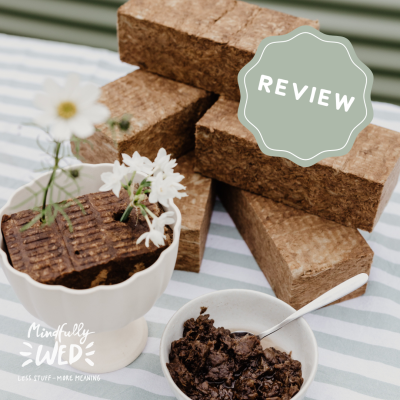
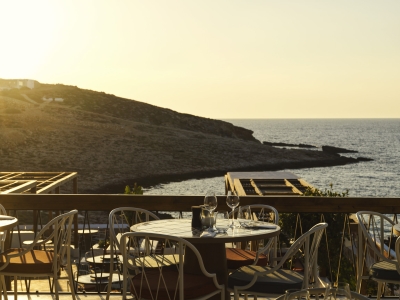



Join the conversation